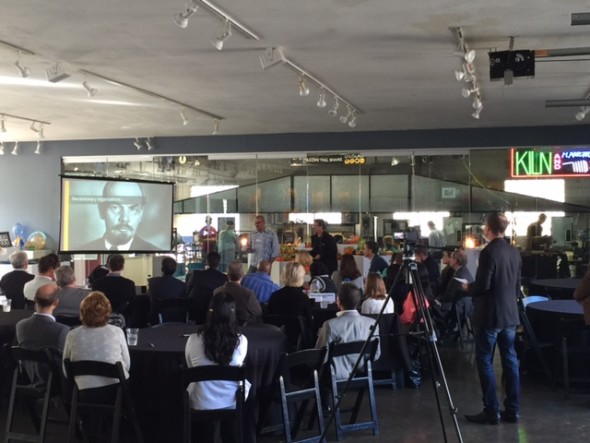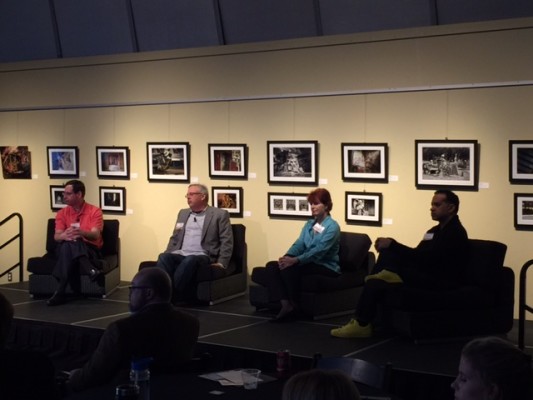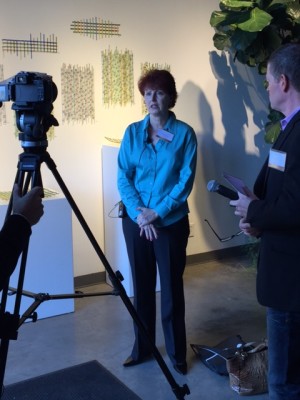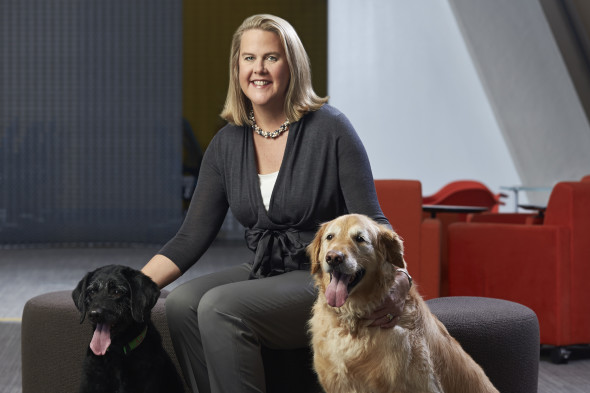Management Consulting and Human-Centered Design company XperienceLab hosted a panel discussion of St. Louis innovation heavy-hitters and an innovation workshop on Friday, October 30 at Third Degree Glass Factory titled “Innovation in St. Louis!” The event included the insights of Chris Meyerpeter, Chief Information Officer and Commercial Operations Lead Monsanto Vegetable Seeds; Travis Sheridan, Executive Director, Venture Cafe – St. Louis; Susan Lang, Founder & CEO, HooPayz and adjunct professor at Olin; and Scott Welz, senior vice president Wells Fargo Advisors.
The topics of innovation and entrepreneurship often bring to mind small start-ups but these panelists shared the particular challenges faced by innovators in large corporate environments and some techniques that lead to success. Meyerpeter emphasized that at Monsanto it is important to focus on the ultimate value of a proposition, not whether or not it’s innovative. “Monsanto has never not funded the right idea. I would challenge the teams, regardless of if you believe the idea is innovative or not, if you can understand the value in the idea, how will it show that value? That’s where the creativity comes in. To me it’s not that different than going to get funding for anything.”
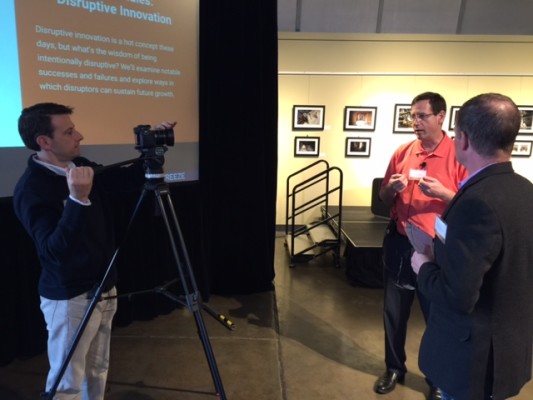
XperienceLab interviewing Scott Welz, SVP & Director of Innovation, Wells Fargo Advisors.
Welz described Wells Fargo as a relative late comer to the conversation about innovation due to the highly regulatory nature of the financial services industry. He described two approaches they use, however, that have been effective in accelerating buy-in. “When we’ve got a new idea, historically, in our business, the compliance and regulatory voices have strong seats at the table, and they are very quick to say why you can’t do it. We use the power of the words, “How might we” to start a discussion around the fact that certainly we understand there will be regulatory issues around this idea, and let’s keep those in mind as we’re going through this, but as we start, lets just explore the idea. We acknowledge up front that we have these constraints, but we don’t apply them early in the process. We wait until we have created something that everyone is really excited about and interested in and understand the value of, and then we make sure that we make that work in the regulatory framework.”
The second technique Welz described involves starting from the client experience. “We say, ‘Wait a second, the point of the regulation has a fundamental client experience impact.’ What if we start with recreating the client experience around that, so that by the time we’re done creating a really cool client experience we happen to be in compliance with that regulation? Also, in doing this, we’ve separated ourselves from our competitors by creating this new way of going about our business that differentiates us and, oh, by the way happens to be in compliance with the new regulation as well.”
Before starting HooPayz, LLC, Susan Lang was the Vice President of Supply Chain at Express Scripts and worked for years to innovate from the C-suite. “There was the issue of the cost of capital how they wanted to spend their dollars. Then there were the issues of competing priorities, political boundaries and obstacles, and then the issue of regulatory obstacles before you ever got to a board decision (depending upon how big an investment you were making). I would say in that environment there are absolute strategies we can talk about of how you first convert your team and then your colleagues and then one level up from you. These strategies work when trying to gain acceptance of ideas in very large political organizations.”
The panel illustrated that although similar needs –such as capital and buy-in–must be met when innovating within an existing corporate environment and when innovating as an entrepreneur, the approaches require different skill sets.
Susan Lang said, “As an entrepreneur who is disrupting outside of the corporate environment, what you really need is to find early adopters that who either knew you before, or believe in you and/or believe in the product and are willing to take a shot at it. You turn them into your other tier that is going on to sell it to the market. So not having corporate marketing money, what I needed was some early clients that became evangelical about what we were doing. Once we got acceptance of that idea, the actual outcome was what we promised.”
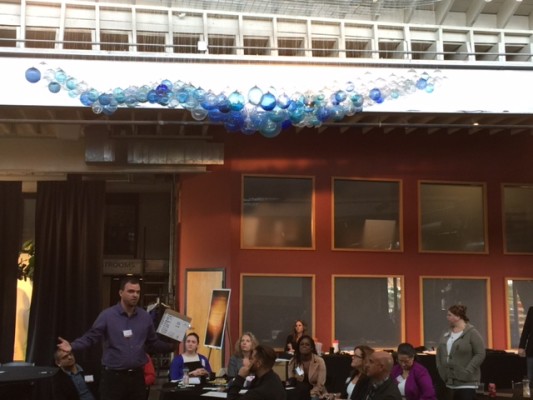
Lance Leonard, PS Operations Manager, Strategy & Innovation, World Wide Technologies, presenting his group’s findings in the Innovation Methods & Tools breakout.
Travis Sheridan described the value of failing and how important it is for entrepreneurs to spend their capital carefully by sharing a story about his own start-up that failed. Investing their own bonus money, he and a friend created a start-up that Sheridan now calls a ‘bad idea.’
“This was a financial failure of mine that helped me to learn how to help other people avoid that financial failure and to really be able to articulate every dollar that they are putting into a venture, be it their own, or asking someone else for that money.”
Following the panel, attendees were given the opportunity to choose between two Breakout Sessions facilitated by XperienceLab: Innovation Methods & Tools, and Case Studies: Disruptive Innovation.
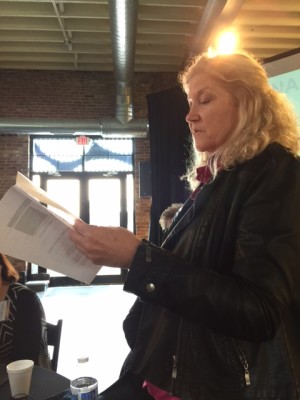
Joyce Mellow, Communications Professional, participating in the Innovation Methods & Tools breakout session.
Morgan Noel, Director at XperienceLab led one of the Innovation Methods & Tools workshops called, “Next Year’s Headlines.” In this workshop, participants came up with an idea based on what they wanted the next year’s headline to say about the idea.


